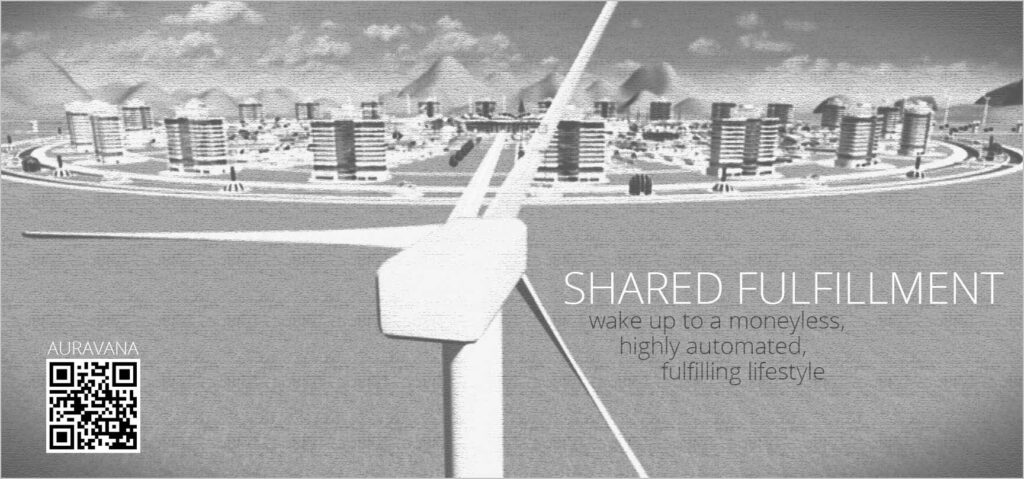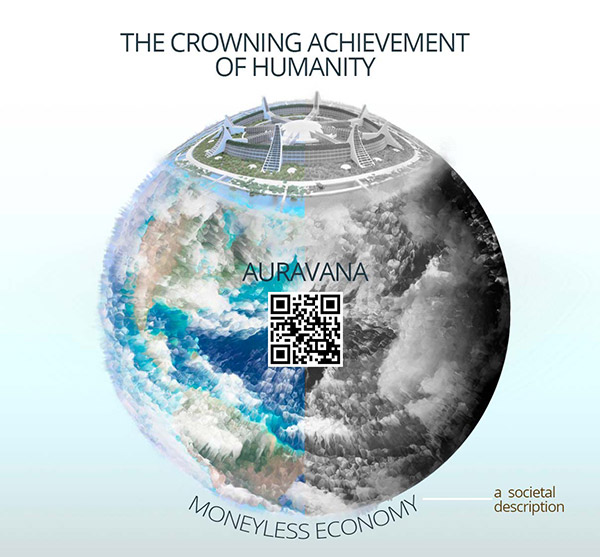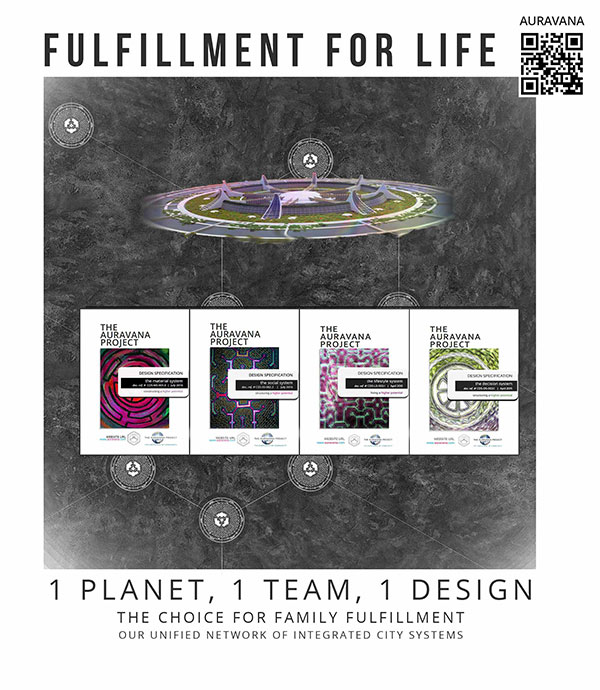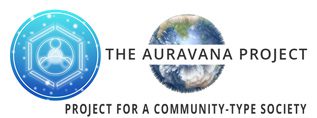Outside Referential Content & Related Organizations
Related sources of information
This page hosts links to significant external content and related external organizations, directly or indirectly involved in developing and sharing a moneyless, highly automated, community-type society composed of a network of integrated city systems.
Internal-page navigation:
Show Me ‘Other References’:
> Other names for our common direction
Show Me ‘All The Organizations’:

Significant external texts AND VIDEO FOR A SOCIETAL-LEVEL COMMUNITY
The current best simplified introduction to our direction.
The current best introduction to our direction as one that includes total city design as well as aesthetic and optimized architecture.
The best fictional (likely fictional) story for what life in a community-type society could be like.
The current best introduction to the actual structural problems facing early 21st century society.
The current best introduction to economic calculation in a community-type society.
The best simplified description of production during transition to a community-type society.
There are a host of other resources besides the specifications and open-source project content presented on this website that detail and otherwise argue for the construction of something similar to the total community system detailed herein. There are many groups out there working on what appears to be a common goal. Yet, to create comprehensively we must start to integrate comprehensively. Below is a list of resources, each of which represents a unique perspective or comprehensive detailing of something similar to the total community system herein.
Also, view the Auravana Project timeline for our common direction for more textual and video references.
TEXTUAL NON-FICTION REFERENCES (ordered by publication date)
- Moneyless Society: The Next Economic Evolution (2022) by Matthew Holten (amazon.com)
- Common Planet: A New Game of Life (2022) by Remzi Bajrami (amazon.com)
- Fully Automated Luxury Communism (2019) by Aaron Bastani (amazon.com)
- The People’s Republic of Walmart: How the World’s Biggest Corporations are Laying the Foundation for Socialism (2019) by Leigh Phillips and Michal Rozworski
- Fundamental Principles of Communist Production and Distribution (2018) by Herman Lueer
- The Best That Money Can’t Buy: Beyond Politics, Poverty, & War (2017) by Jacque Fresco (thezeitgeistmovement.se)
- The New Human Rights Movement: Reinventing the Economy to End Oppression (2017) by Peter Joseph (amazon.com)
- The Trom Books (2017; tromsite.com)
- The Zeitgeist Movement Defined: Realizing a New Train of Thought (2014) by TZM (thezeitgeistmovement.com)
- A Roaming in The Zeitgeist Movement Defined: Realizing a New Train of Thought (2014) by Leila Mireskandari (archive.org)
- Consumertecture or Design Science (2014) by Mason Lee
- The Zero-Marginal Cost Society (2014) by Jeremy Rifkin (thezeromarginalcostsociety.com)
- Towards a New Socialism (2013) by Paul Cockshott and Allin Cottrell
- The First Civilization (2012) by Jas Garcha (archive.org)
- Imagining the Cybernetic City: The Venus Project (2005) by Anna Notaro (nobleworld.biz)
- Designing the Future (2007) by Jacque Fresco (thevenusproject.com)
- Bolo’bolo (1983) by Hans Widmer
- Looking Forward (1969) by Kenneth S. Keyes Jr. and Jacque Fresco (thevenusproject.com)
- Garden Cities of To-morrow by Ebenezer Howard (1898) (archive.org)
- The Paradise within the Reach of all Men (1833) by John Etzler (facebook.com)
Historic Texts with Alignment and Disagreement
- A Pattern Language: Towns, Buildings, Construction (1977) by Christopher Alexander, Sara Ishikawa, Murray Silverstein. Early thinking about a city system network under market conditions and a more holistic approach to the built environment.
TEXTUAL FICTION REFERENCES (ordered by publication date)
- Chronicles From The Future – The amazing story of Paul Amadeus Dienach (2021; pdfdrive.com)
- How the People Elected New Systems for President (2020) by Ananda Reeves (smashwords.org)
- Energia (2016) by Michael Centra (smashingwords.org)
- Operation Survival Earth (1976) by Stefan Denaerde
- Looking Backwards: 2000-1887 (1888) by Edward Bellamy
VIDEO REFERENCES (alphabetically ordered; also, view the Auravana Project’s videos)
- Adam Jones (youtube.com)
- Culture in Decline by Peter Joseph. And also see Peter Joseph’s media archives (peterjoseph.info)
- Humans Need Not Apply by CGP Grey (youtube.com)
- The Choice is Ours documentary series (thevenusproject.com)
- The Trom Documentary (tromsite.com)
- The Venus Project (youtube.com)
- The Zeitgeist Movement Official (youtube.com)
- Zeitgeist Moving Forward film by Peter Joseph (zeitgeistmovingforward.com)
Historic Videos
-
- Walt Disney’s Original Plan for EPCOT (Experimental Prototype City of Tomorrow) on Youtube. Disney wasn’t promoting a community-type society (socio-economic system), but there was thoughtful design into the integrated “EPCOT” city.

Other possible names for a community-type society
Sometimes, when people look at this common direction of ours they mistake what they are seeing as a context for the whole thing. Their context is often revealed in the name they give to that which they perceive as a better way of living. They might call that which we (i.e., The Auravana Project) refer to as ‘Community’, by a host of other names, which reveals a context for their perception.
Here, it is important to list some of the names, we think, are similarly representative to that which we are proposing, and refer to as ‘community’. Our current reasoning, however, has led us to the idea that at the top-level, the word ‘community’ is the most accurate term for that which we all appear to developing and advocating. We aren’t just trying to create a new social system or a new economic system, or simply define a new lifestyle, or set of technologies and architecture; instead, we are working toward the emergent creation of a comprehensive living system for human fulfillment and ecological sustainability, which involves a network of integrated city systems. The name we have given to this system is ‘community’. And, we define our usage of the term in a series of media releases.
Below is a list of only some of the other names we think are somewhat representative for that which we are creating. Of course, this is just our opinion, we do not speak for these other organizations:
- The Auravana Project uses the term Community-Type Society.
- The Venus Project uses the term Resource-Based Economy (RBE). Jacque Fresco, the founder of Sociocyberneering, Inc., now known as The Venus Project has stated that the system he describes may also be called an Access-Based Economy. It seems that socio-cyberengineering was likely the original technique Fresco imagined would bring about the creation this new economic paradigm. Also, notice how the terms Resource/Access-Based Economy reveal the context through which The Venus Project views the system. These two names do not inform an observer about the other aspects of the total system, such as its social structuring. Further, it is somewhat imprecise to refer to the total system as a “resource-based economy”, because before we consider resources and access (from a design perspective), we must have an understanding of systems. So, the economic model is really a systems-based model (first) that appropriately accounts for resources and for access (second). Of course, in modern society, the term ‘systems-based economy’ would be even more broad than the term ‘resource-based economy’, which Fresco attempted to trademark in 2010, but was denied after a review found it to be too generic. Additionally, all economies are based (in part) on resources, so labeling the system as a “resource based economy” is highly ambiguous. And, of course, at the top-level the economic system is part of the decision system.
- The Zeitgeist Movement, in general, refers to the system as a “Natural Law”/Resource-Based Economy (NL/RBE).
- The One Community project, like The Auravana Project, refers to the system as ‘Community‘.
- In contrast to capitalism, the system is often referred to as a moneyless society (moneyless-type of society), because it does not use money. However, this term, moneyless, should probably not be used as the top level identifier for this type of society because it is a negative (denotes what is not present, and does not give any indication of what is present).
- The TROM site refers to it quite accurately as a tradeless society, or trade-free society. The same reason the societal type should not be named moneyless applies to the term, tradeless.
- Jeremy Rifkin, the author of the 2014 book “The Zero Marginal Cost Society: The internet of things, the collaborative commons, and the eclipse of capitalism” refers to the system with a more market-based terminological slant as a ‘Zero-Marginal Cost Society‘. The term, zero-marginal cost, is a view of the system through a capitalist lens.
- Marxists generally call the system by several different names, including but not limited to: “communism” (with no qualifications), “fully automated luxury communism“, “cybernetic communism“, etc. To non-marxists, communism is associated with authoritarianism and danger; and hence, they see no benefit to adding the word, “communism” to more technical labels, such as, “post-scarcity society” or “post-scarcity economy”. In socialist literature, communism is effectively defined as a moneyless, Stateless, classless society. In the early 21st century, many of the States around the world that call themselves “communist” do not represent a depiction of such a society. All so-called “communist” States are not actually communist and never have been. Every communist State is a socialist State under the belief/pretense that their form of socialism is a necessary precursor and serves a foundation in the establishment of true communism. The idea these States put forward is that socialism diverges from capitalism in giving the workers the products of their labor, rather than a single business owner. Communism is one step further, where objects and services are produced and distributed freely according to human need and there is no longer any trade, State, or class. Of note, the USSR stood for the Union of Socialist States Republics. Nearly all former and current “communist” states are based on single “communist” political party rule. This belief is based on marxism-leninism (maoism, etc.) ideology with the goal as a one party States taking control and guiding society into “communism”. All “communist” States in the early 21st century are actually mixed systems, where capitalism and socialism are mixed. Censorship and violence against descent are a major part of these governments. Just because Marxist imagery is used by some States in the early 21st century does not mean they adhere to any of the principles of communism (moneyless, Stateless, and classless), or are engaged in a peacefully evolved social transition thereto. Transparency and explainability of community standards is required, which these States do not have and have not adopted.
- Sci-fi socialism (a.k.a., utopian socialists) characterizes a number of books that disregard social change in order to create a community configuration of society, and instead rely entirely on technological advancements. These include, but are not limited to: “Fully automated luxury communism” by Aaron Bastani and “Postcapitalism: A Guide to Our Future” by Paul Mason. In order to create community, in fact, the transition requires a complete change in humans relationships to each other and the planet, and new habitat-based materializations, and yet the sci-fi socialists disregard that because they believe that technology, and in particularly, space and power production technology, will solve all problems (someday in the future).
- We also sometimes observe the system we propose being referred to as:
- Abundance-based community
- Access-based economy
- Access-based society
- Adaptive and optimized living system
- Blue-zone community
- Circular economy
- Circular life economy
- Circular society
- Class-less society
- Community ecology
- Cybernetic economy
- Cybernetic society
- Human utility economy
- Intentional community (although it is unlike any of the intentional communes that have existed among modern society)
- Market-less society
- Money-less society
- Money-less and Stateless society
- Natural resource economic system
- Need fulfillment society
- Open access economy
- Open access society
- Post-scarcity economy
- Post-scarcity society (if “scarcity” refers to resources, then this term is a misnomer because resources are still finite; if “scarcity” refers to humanity’s ability to meet all human needs, then it is not a misnomer)
- Post market-State economics, post market economics, post labor economics
- Pro-social economy
- Real-world economy
- Resource-based abundance economy
- Resource-based society
- Sustainable society
- State-less society
- Teal society
- Trade-less society
- Up-to-date walking community garden city network
There will likely be other, and possibly more accurate, names for this societal system, as we all, learn, more. But, you know what it’s not called, it’s not called a “utopia”. There is no such thing as utopia; there is only the best that can be designed up till now.

Lists and analyses of similar organizations
This table lists other organizations, persons, and content related to the development, transition, and operation of community at the societal scale. This database is updated periodically.
View the: Auravana Similar References Table (docs.google.com)
